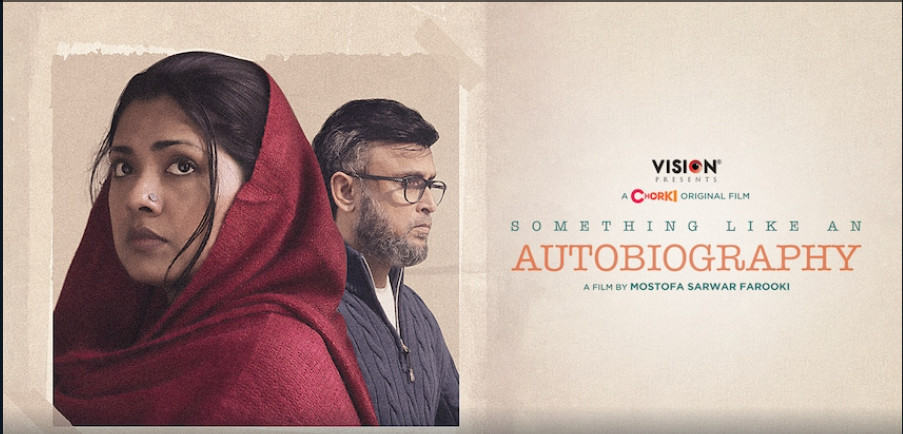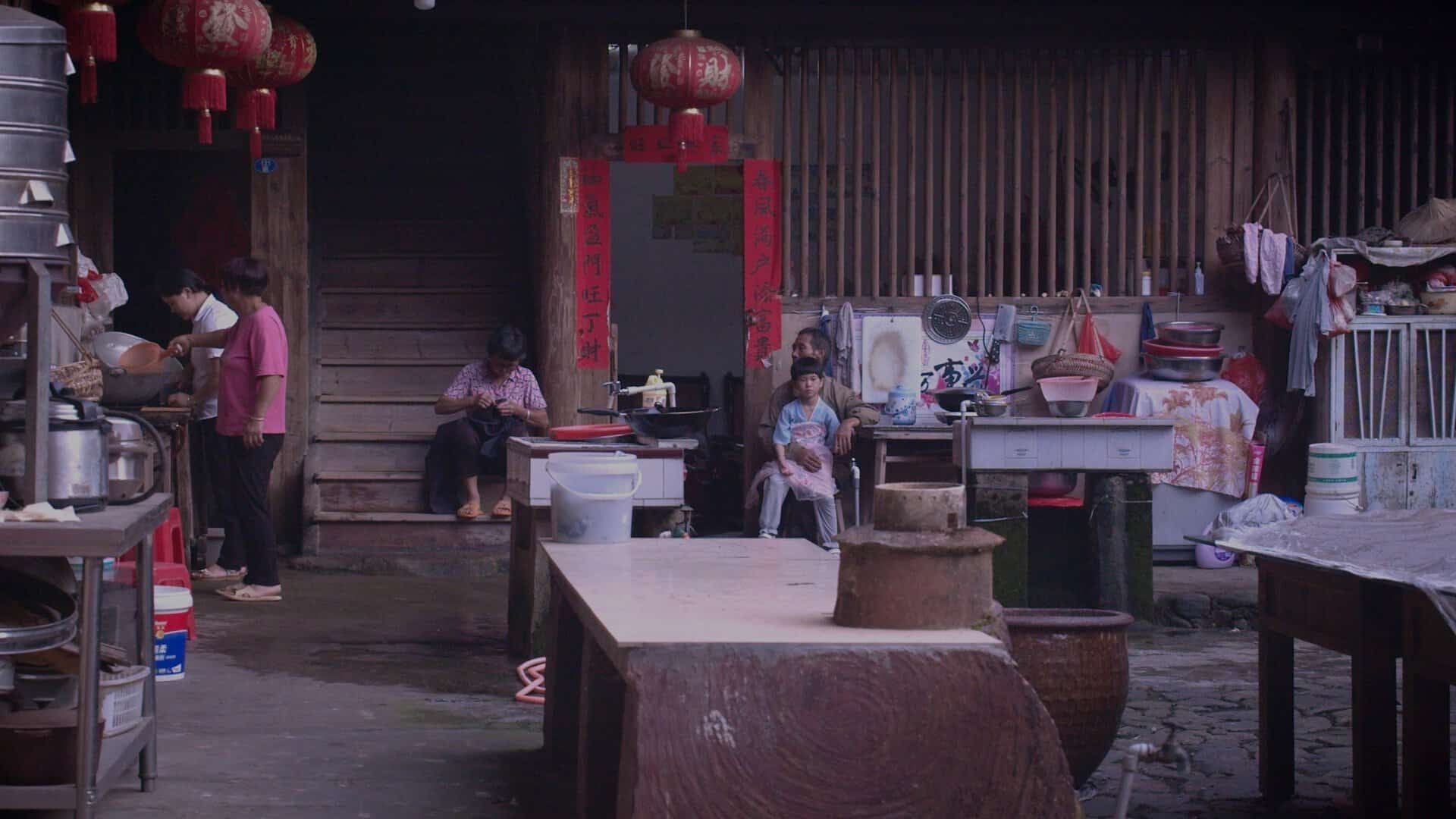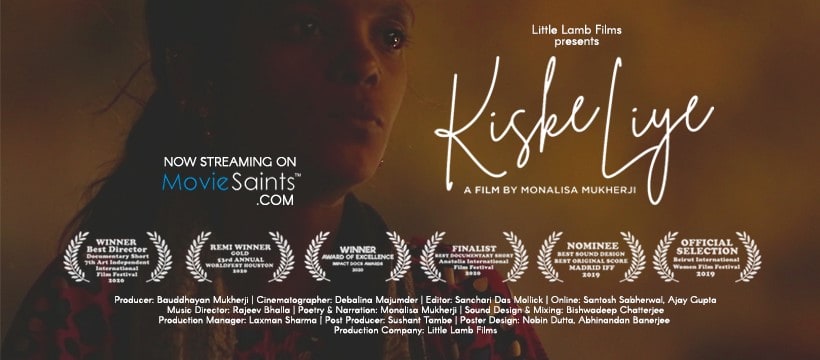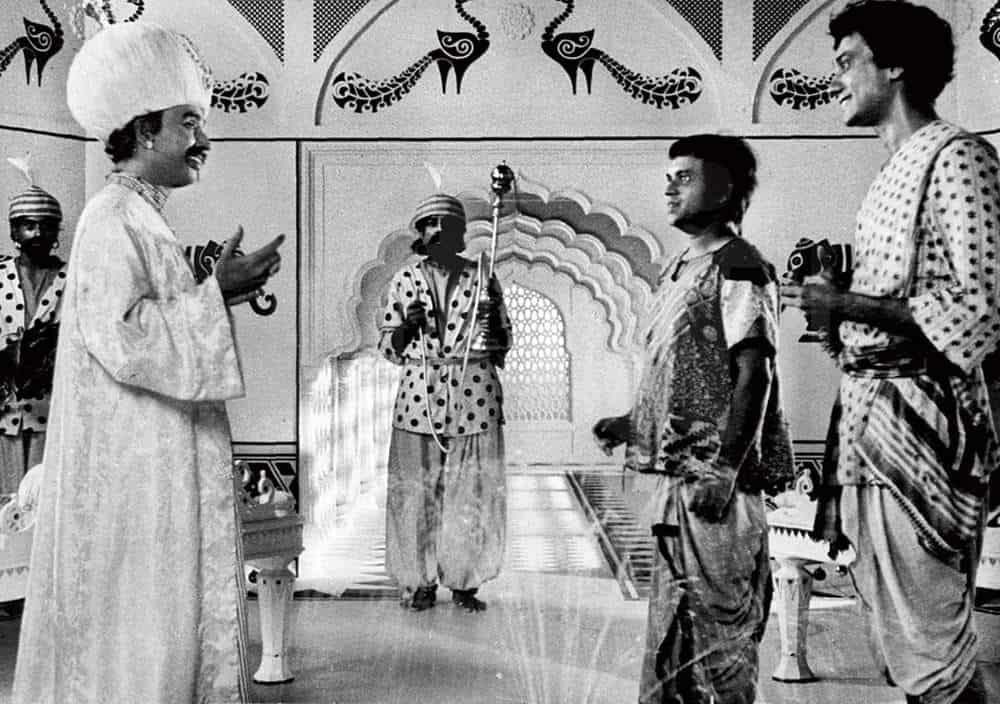Borrowing its title from Kurosawa's autobiography, “Something Like an Autobiography” marks Farooki's first endeavor as an actor, while the fact that it was co-written by him and his wife, Nusrat Imrose Tisha, who also co-stars, and is inspired by their own life, induces it with an intense meta element. Let us take things from the beginning though.
Something Like an Autobiography is streaming at Chorky

Farhan, a director, and Tithi, an actress, are a married celebrity couple living in Dhaka. Despite their success and popularity, they also have to face the other side of show business, since in the Muslim patriarchal society of Bangladesh, a couple not having children is considered something of a sin. During the pandemic, however, the couple finally find the time and Tithi eventually gets pregnant. One fateful night, though, near the end of her pregnancy, Tithi grows uneasy due to loud sounds that continue late into the night. Farhan ventures into the night to investigate and stumbles upon a party.
Despite the economical 82 minutes of its duration, Farooki manages to present a movie that is filled with sociopolitical and even philosophical commentary. The way the concept of celebrity functions within the local society, with them both occasionally enjoying privileged treatment, and having to deal with critique by fans and haters alike is a central one here, but is definitely not the only. How corruption works in the country and how the rich can essentially do whatever they want is also highlighted, with the way the issue that is eventually presented is solved in similar fashion, intensifying the comment even more.
Furthermore, Farooki and Tisha's script also shows how a single moment of lost control can destroy people's lives, while yet another comment, of how sometimes, sacrificing one's beliefs, and essentially individuality for the sake of family, is the only way to survive, concludes the rather rich narrative here.
The transition from family/social drama to thriller, and to drama again is also excellent, with Farooki's directorial abilities finding their apogee here, as the individual parts provide a much welcome relief from each other, while retaining interest from beginning to end. Momin Biswas's editing helps the most in that regard, with the pace picking up and slowing down according to the individual nature of each part. Lastly, that the movie is essentially completely stripped from any unnecessary scenes emerges as a trait of both direction and editing. Tahsin Rahman's cinematography is also excellent, finding its apogee in the night and the overall tense scenes, with the sense of claustrophobia it eventually emits working excellently for the movie.
The movie also thrives on its acting. And if Tisha's excellent performance, particularly in her moments of despair, was to be expected, Farooki's impressively natural one comes as a rather pleasant surprise, with him appearing as if ready to move in front of the camera all along. Furthermore, the chemistry of the two is outstanding, both in the tense and the more relaxed and happy moments, in another of the title's great traits.
“Something Like an Autobiography” is a great film, for all that is already mentioned but also because the filmmakers have managed to take a series of very personal and local issues and give them a hypostasis that will apply to audiences all over the world















